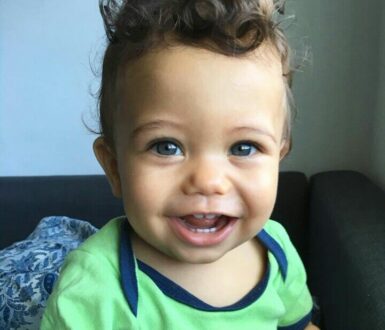
Exclusive Video Recording – Understanding Young Brains and Early Environments
Early Years Scotland was delighted to bring the first of a new series of informative professional learning seminars for early years professionals and anyone with an interest in supporting babies and young children to learn, develop and thrive.
We were honoured to commence these sessions with the expertise of Professor Sam Wass, who runs the BabyDev Lab at the University of East London (UEL) and Dr Rachel Barr, Ph.D. who is Professor of Psychology at Georgetown University and Director of the Georgetown Early Learning Project.
In this session, we present some findings from recent neuroscience that look at how a young child’s brain is different from a grown-up. We look at how young children’s brains process their environments – the sights and sounds around them – differently from an adult. We also look at what this means for how we should design early life environments – both real-world, and digital – to be optimal for young children.
In part 1 of this seminar, we talk about how some parts of young children’s brain are quite well developed at a time when other parts are still a complete building site. We talk about how young children’s brains have got more total connections than an adult brain does. We talk about how this means that young children are more likely to get overwhelmed by sights and sounds around them, and why they find it difficult to ‘tune in’ to one thing and ignore others. However, we also talk about how young children’s overconnected brains mean that they are better than adults at some forms of learning – such as language learning, for example.
In part 2 we focus on digital environments, and how they affect children. Digital media is embedded in the lives of all family members including infants and with the advent of mobile and streaming media, can occur anywhere and at any time. There is controversy because parents, educators, and policy makers often focus only on child screen time, defined as estimates of child time spent with digital media. Screen time is often considered harmful to infants. However, there are multiple factors that shape family media ecology. Parents have different motivations for using media themselves and with their children from connection with family members to entertainment and education which in turn are linked to different patterns of media use. We will discuss practical recommendations for families and practitioners for mindful media use.
Biographies:
Rachel Barr, Ph.D. is Professor of Psychology at Georgetown University and Director of the Georgetown Early Learning Project. Children are remarkable learners but many face remarkable challenges. Barr is primarily interested in how they pick up information so rapidly from the world around them. She has investigated how children bridge the gap between what they learn from media and how they apply that information in the real world and has worked with a parenting organisation to disseminate the knowledge via Zerotothree’s Screensense resources. She has also co-developed a parenting intervention that utilises media. Finally, she is investigating how young children pick up language(s) in bilingual and monolingual homes and how that affects learning in other domains.
Professor Sam Wass studied at Oxford, London, and Cambridge, and currently runs the BabyDev Lab at the University of East London. Sam’s research is funded by Research Councils UK, the European Research Council, and Medical Research Council and many others to research how early life stress develops, and how stress influences attention and learning in typical and atypically developing children (including ADHD, ASD, anxiety and others). He is also a co-founder of Nest Kids, which provides education and support services for Early Years, and works with commercial organisations including Melissa & Doug, Disney+ and LEGO. He has fronted press campaigns promoting awareness about early child development for Public Health England and the Department of Education, and he appears regularly in the media as an expert in child development, including as an on-screen child psychologist in five series of the multi-award-winning Channel 4 show The Secret Life of 4- and 5-Year-Olds.
Early Years Scotland Members will receive their membership category discount.
Non members £30.00
TO PAY BY INVOICE PLEASE CONTACT US
A link to the unlisted YouTube video will be sent within your booking confirmation.
